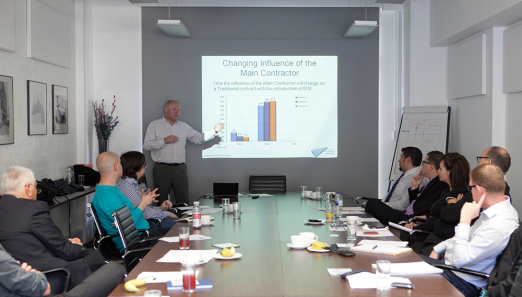An effective specification sales process ensures your team is focused in the right areas, communicating successfully with key decision makers at the right stage of the construction project to create demand for your products. There are a number of steps that need to be taken to put in place this process. This post maps out this process, the journey of specification.
1. Research your Key Construction Markets
Before starting your journey it is important to research your destination. Take the time to identify the construction sectors that work best for your products, where the benefits you offer will be best received and focus on these. You need to understand the dynamics of this construction sector, the structure and possible future developments. Prior to embarking on any journey it is important to do your research, to plan your route and make sure you understand what is involved. Get the answers to questions such as which sectors are most suitable? Who are the key decision makers? What influences them to select products?
2. Understand the Construction Supply Chain
Once you have an understanding of the construction landscape it is then important to know how to navigate it. ‘Supply chain’ is the term used to describe the chain of companies that turns basic materials, products or services into a finished product for the client. The construction supply chain can be likened to a transport network delivering construction products and services. To deliver an effective specification strategy it is important to know how this supply chain is linked together. You wouldn’t want to miss a connection!
3. Know your Construction Contracts
A strong influence in this supply chain is the type of contract – traditional, design & build, management contracting, PF2. On our journey we could liken this to the type of ticket to purchase. Knowing your contract types will help you understand the changing dynamics of the decision making unit. Identify who has the primary influence at which stage of the construction process and what will be there drivers. Think about the type of contract where the specification is most likely to hold firm. Help by providing written specifications for designers to utilise.
4. Understand the Construction Decision Making Unit
Like any journey, meeting the locals means you get a more in-depth understanding of the culture they live in. With construction product specification it is important to get to know the key decision makers and those influencing specification. By building relationships with these decision makers you will learn what is of importance to them. This knowledge will help you to present how your product meets their needs in a relevant context.
5. Know the Influences on Construction Product Specification
What will the climate be like? With construction it is important to have an awareness of external influences on product selection. This can include government regulations, sustainable initiatives, building regulations, design influence to name a few. Staying informed of these can warn of any stormy weather ahead that will jeopardise the specification of your construction product.
6. Sales tools
Make sure you pack the right items. Once you understand the journey ahead you can pack the right kit. With effective specification selling it is important to provide your team with tools that will make their task easier, smoothing the journey. Tools to make the job easier include, compelling technical CPD presentations, samples, product catalogues, technical data sheets, BIM data and technical support. And before any intrepid expedition it is also good to complete training.
To learn more join Chris on his training course being held at The Building Centre on 11th October 2016:
Creating Demand Through Specification - 11th October 2016
This course is suitable for those in marketing or sales management responsible for developing and implementing strategy as well as the salesmen calling on architects, engineers and contractors.
This course examines the market dynamics which influence decision making and the specification process itself. It proposes methods of working with specifiers, contractors and distributors and suggests methods to manage the process.
Early bird rate of £247 + VAT applies until 9th September 2016, £295 + VAT thereafter.
Chris Ashworth
Managing Director, Competitive Advantage
 Chris has over 35 years sales and marketing experience in the construction industry and is one of the construction industry’s leading authorities on Specification Selling. He spent 20 years in sales and marketing roles with building product manufacturers before founding Competitive Advantage in 1999.
Chris has over 35 years sales and marketing experience in the construction industry and is one of the construction industry’s leading authorities on Specification Selling. He spent 20 years in sales and marketing roles with building product manufacturers before founding Competitive Advantage in 1999.

